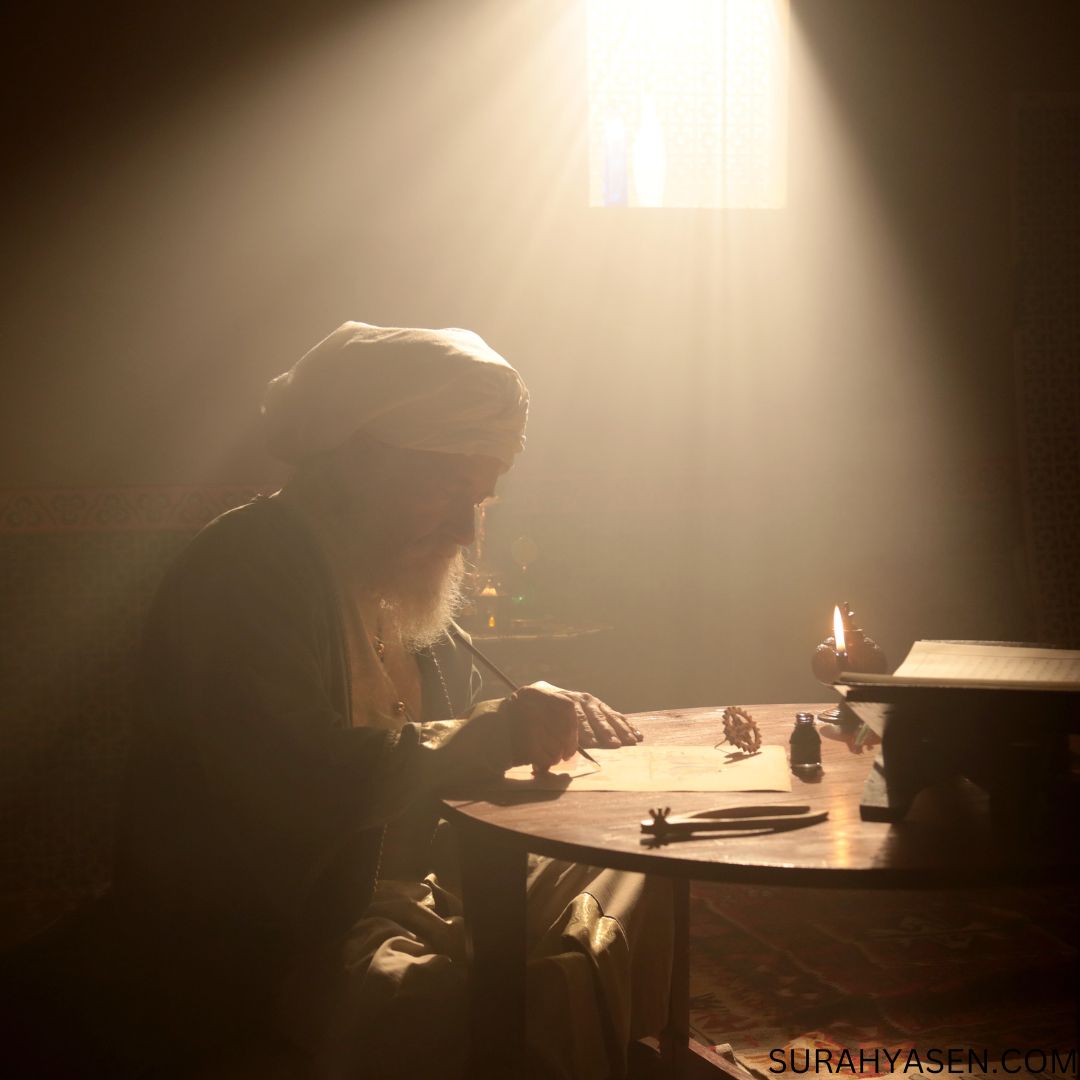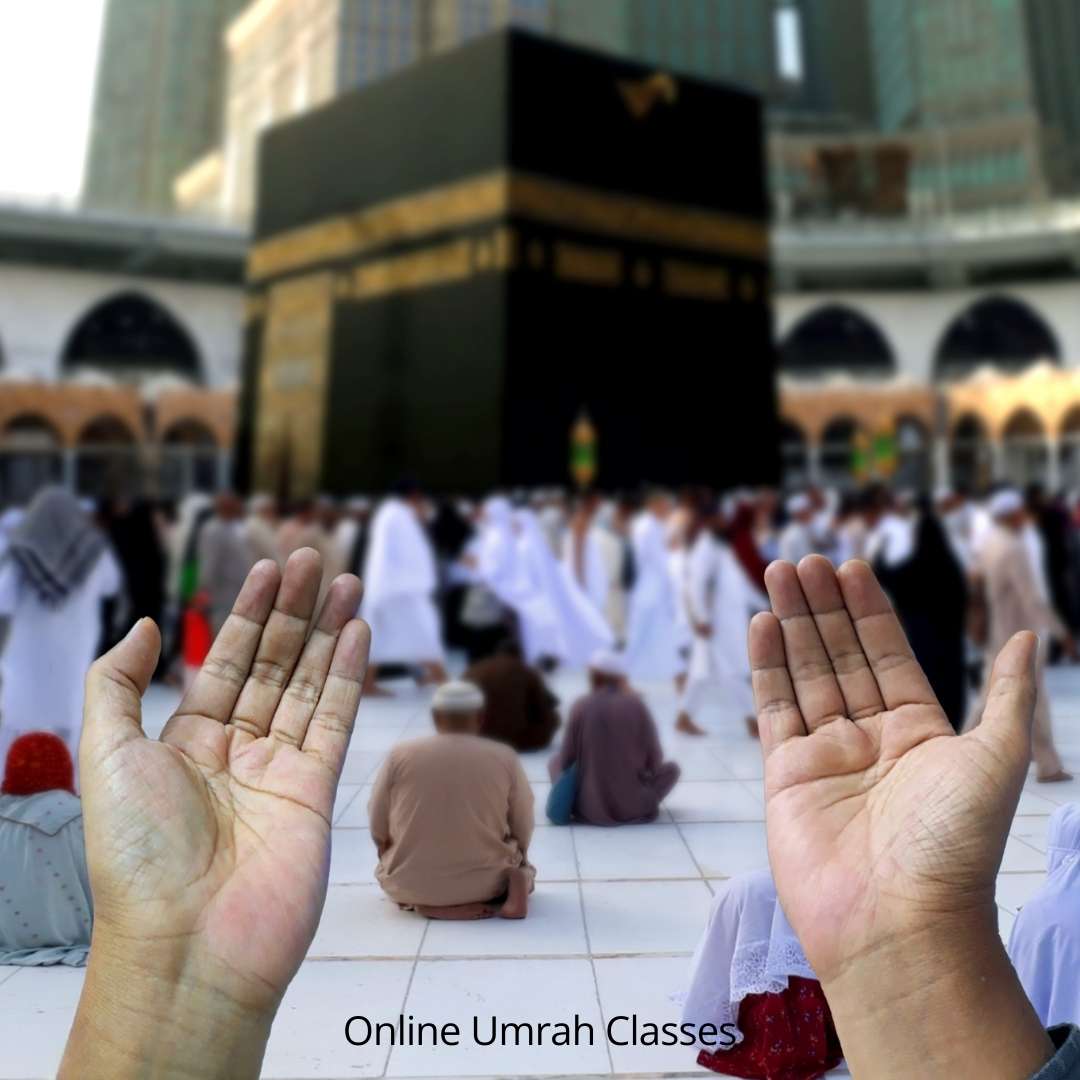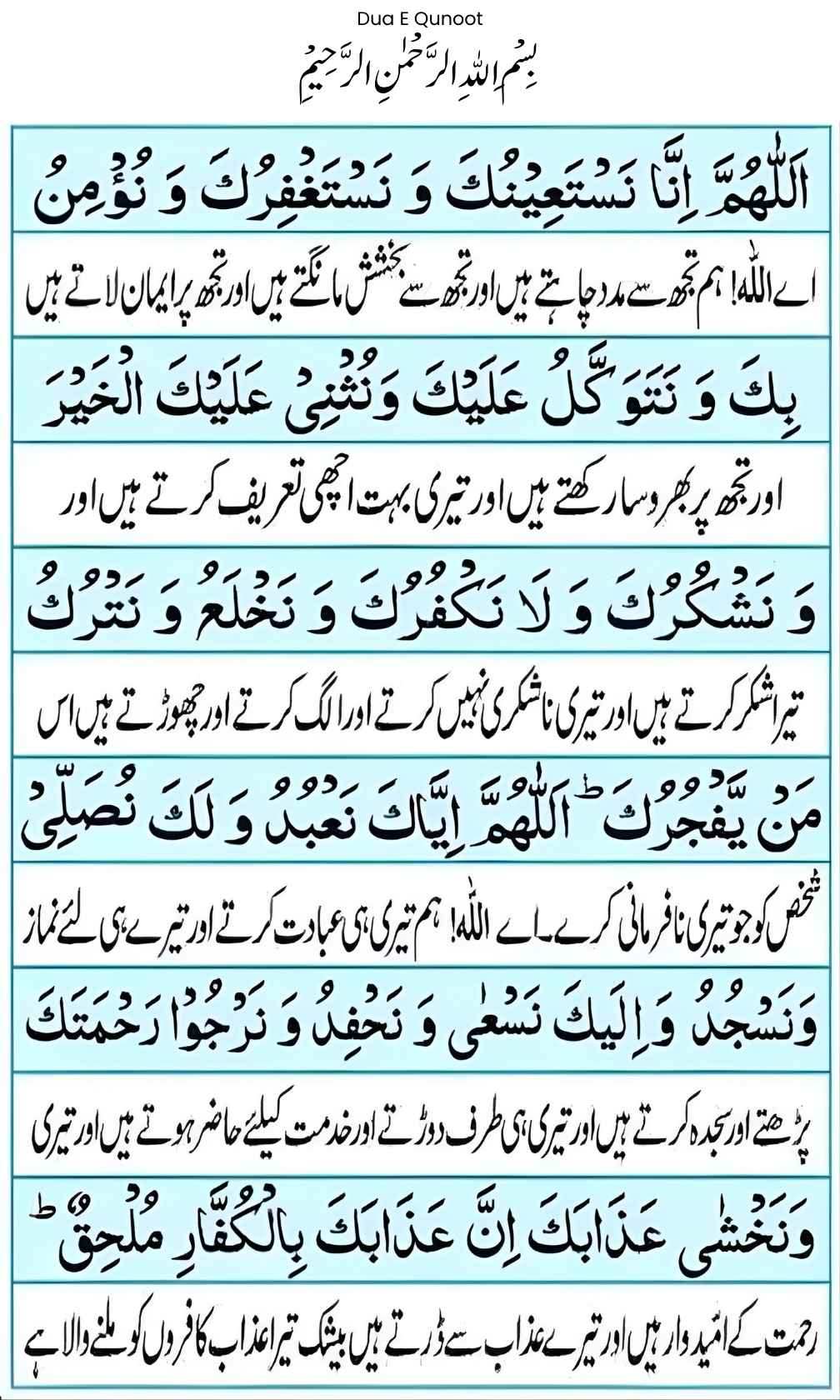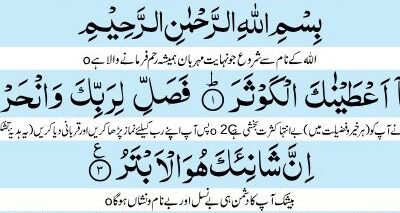Blog
How to Become a Muslim

Becoming a Muslim is a profound and life-changing decision. Islam is a monotheistic faith that believes in the oneness of God (Allah) and follows the teachings of the Prophet Muhammad (PBUH). The journey to embracing Islam is deeply personal and transformative. Here, we will guide you through the process of how to become a Muslim, supported by hadith references and important facts about Islam.
1. Understanding the Core Beliefs of Islam
To begin your journey to becoming a Muslim, it’s crucial to understand the core beliefs of the faith. Islam is built on the Five Pillars of Islam, which are the foundation of a Muslim’s life. These are:
- Shahada (Faith): The declaration of faith that there is no god but Allah, and Muhammad is His messenger.
- Salah (Prayer): The performance of daily prayers.
- Zakat (Charity): Giving a portion of your wealth to the less fortunate.
- Sawm (Fasting): Fasting during the month of Ramadan.
- Hajj (Pilgrimage): The pilgrimage to Mecca, which is performed once in a lifetime by those who are able.
The Shahada is the most significant statement in Islam, signifying the acceptance of the oneness of God and the finality of the Prophet Muhammad’s (PBUH) message.
Hadith Reference on Faith:
The Prophet Muhammad (PBUH) said: “Whoever says, ‘There is no god but Allah,’ and Muhammad is the messenger of Allah, then he is a Muslim.” (Sahih Muslim)
2. Declaring the Shahada (Testimony of Faith)
The first and most important step in becoming a Muslim is to declare the Shahada (Testimony of Faith). This declaration consists of two key phrases:
- La ilaha illallah (There is no god but Allah).
- Muhammadur rasulullah (Muhammad is the Messenger of Allah).
By reciting this declaration sincerely, you embrace the faith of Islam. The Shahada is often recited in Arabic, but it can be understood in any language.
Hadith Reference on Shahada:
The Prophet Muhammad (PBUH) said: “Whoever says ‘There is no god but Allah and Muhammad is the Messenger of Allah,’ and believes it sincerely from his heart, will enter Paradise.” (Sahih Muslim)
3. Learning the Essentials of Islam
Once you have recited the Shahada, it’s important to learn the basic teachings of Islam. This includes the Five Pillars of Islam, understanding the Quran (the holy book of Islam), and the Hadith (sayings and actions of the Prophet Muhammad, PBUH). It is recommended to start with reading translations of the Quran and learning about the life of Prophet Muhammad (PBUH) through authentic Hadiths.
Key Facts About Islam:
- The Quran is the word of Allah revealed to the Prophet Muhammad (PBUH) over a span of 23 years.
- The Hadith is a collection of sayings, actions, and approvals of Prophet Muhammad (PBUH) that help explain the Quran and serve as a guide for Muslims.
- Tawhid is the concept of the oneness of Allah and is central to Islamic belief.
Hadith Reference on Seeking Knowledge:
The Prophet Muhammad (PBUH) said: “Seeking knowledge is an obligation upon every Muslim.” (Sunan Ibn Majah)
4. Practicing the Five Pillars of Islam
As you continue your journey to becoming a Muslim, it’s important to begin practicing the Five Pillars of Islam. Here’s a brief overview:
- Salah (Prayer): Muslims perform five daily prayers—Fajr, Dhuhr, Asr, Maghrib, and Isha. These prayers are essential for spiritual connection and discipline.
- Zakat (Charity): Muslims are required to give a portion of their wealth to those in need. This is a form of purification and a way to help those less fortunate.
- Sawm (Fasting): Muslims fast from dawn to dusk during the month of Ramadan, abstaining from food, drink, and other physical needs. It is a time for spiritual reflection and self-control.
- Hajj (Pilgrimage): If possible, Muslims are required to perform the pilgrimage to Mecca once in their lifetime.
Hadith Reference on Charity:
The Prophet Muhammad (PBUH) said: “The best of people are those who are most beneficial to others.” (Daraqutni)
5. Embracing the Islamic Community (Ummah)
As a Muslim, you become part of the Ummah—the global community of Muslims. It is important to connect with local Muslims for support, learning, and growth in your faith. Attending the mosque for prayer, learning from scholars, and engaging in community activities are key aspects of Islamic life.
Hadith Reference on Unity:
The Prophet Muhammad (PBUH) said: “The believers are like a single body; when one part of the body hurts, the whole body feels the pain.” (Sahih Muslim)
6. Maintaining a Good Character and Conduct
Islam emphasizes the importance of good character and moral conduct. As a Muslim, it is essential to embody kindness, patience, honesty, humility, and compassion towards others. Following the example of the Prophet Muhammad (PBUH) in your interactions with others will help you live a meaningful and righteous life.
Hadith Reference on Good Character:
The Prophet Muhammad (PBUH) said: “The best of you are those who have the best character.” (Sahih al-Bukhari)
Conclusion
Becoming a Muslim is a beautiful and transformative decision that brings one closer to Allah. By declaring the Shahada, learning the teachings of Islam, and practicing the Five Pillars, you begin your journey in faith. With time, continued learning, and involvement in the Muslim community, you can grow spiritually and live a life of purpose, peace, and compassion.
Final Note:
Islam is a faith of peace, submission, and worship of Allah alone. It is a journey of self-improvement and connection with the Creator, aiming to lead a balanced and purposeful life.
“Indeed, this Quran guides to that which is most suitable.” (Quran 17:9)
May Allah guide you on your journey to embracing Islam and grant you success in this beautiful path.
Blog
Top Benefits of Taking an Online Umrah Course Before Your Pilgrimage

Performing Umrah is a life-changing experience, but it’s also one that requires proper understanding and preparation. Many first-time pilgrims struggle with the rituals, duas, and logistics involved in this sacred journey. Enrolling in an online Umrah course before traveling ensures that every step of your pilgrimage is performed with confidence, clarity, and spiritual depth.
The Importance of Learning Before Performing Umrah
While Umrah is not as extensive as Hajj, it still holds immense spiritual value and specific rituals that must be performed correctly. Learning through umrah classes beforehand helps pilgrims understand:
- The step-by-step process of Umrah rituals
- The significance behind each act of worship
- Common mistakes to avoid during the journey
By studying these aspects early, pilgrims can focus more on worship and reflection rather than confusion or uncertainty once they arrive in Makkah.
Why Choose Online Umrah Courses
- Comprehensive Step-by-Step Guidance:
Online Umrah courses offer detailed lessons explaining every stage of the pilgrimage from Ihram to Tawaf, Sa’i, and shaving or trimming the hair. Visual guides and practical demonstrations make learning easier than reading from a book alone.
- Flexibility and Convenience:
With umrah courses online, you can learn at your own pace from anywhere in the world. Recorded lectures and mobile access make it possible to study between work or family responsibilities.
- Qualified Scholars and Instructors:
Online Umrah training is led by experienced scholars who ensure every teaching aligns with authentic sources from the Quran and Sunnah.
- Ideal for Individuals and Families:
Families can learn together, making it a shared spiritual preparation. Parents can also help children understand the values of the pilgrimage before traveling.
- Practical and Spiritual Preparation:
Many courses go beyond rituals to include practical travel advice such as managing Ihram, packing essentials, and understanding cultural etiquette all designed to make the pilgrimage more organized and fulfilling.
What You’ll Learn in an Online Umrah Course
- Meaning and purpose of Umrah
- Step-by-step rituals and their significance
- Required intentions (niyyah) and supplications (duas)
- Rules of Ihram and prohibited actions
- Common errors and how to avoid them
- Reflection and mindfulness during the journey
Spiritual Benefits of Pre-Umrah Education
Learning about Umrah before traveling ensures your heart is prepared for worship. Instead of focusing on logistics or rituals during the pilgrimage, you’ll be able to concentrate on reflection and dua. A strong foundation of knowledge enhances humility, patience, and connection with Allah throughout the journey.
How Online Learning Elevates the Experience
Modern technology allows Muslims to gain authentic knowledge regardless of their location. By studying through an online Umrah course, learners combine the convenience of e-learning with the timeless spirituality of the pilgrimage. Recorded sessions, visuals, and quizzes make it easy to remember each ritual and perform them with perfection.
Conclusion
Preparing with an umrah course online ensures your pilgrimage is guided by knowledge and devotion. By understanding each step beforehand, you’ll perform Umrah with confidence, avoid common mistakes, and experience a deeper spiritual connection.
Start your preparation today through trusted online Umrah classes and step into your sacred journey with full awareness and peace.
Blog
6 Types of Umrah Deals to Consider for Your 2026 Pilgrimage

Umrah is a spiritual pilgrimage to the House of Allah Almighty and is a dream of every single Muslim living on this planet. If you are someone who is looking for Umrah Packages to embark on this sacred voyage in the coming year, you are at the right place. We will help you discover some types of Umrah deals that can facilitate your journey to make it more fulfilling. Whether you are seeking a budget-friendly way of completing this sunnah or you want to prioritise comfort over savings, this write-up has covered everything for you. Let us not take up more of your time anymore and jump directly into it!
1. Budget Umrah Packages
Many people think that they cannot visit the holy cities of Makkah and Madinah just because it might drain their bank account. But no more worries as budget packages are here for the rescue. This is because these Umrah offers are specifically designed to facilitate those who seek an affordable way to fulfil the rituals of tawaf and sa’i. We suggest exploring these deals for a pocket-friendly travel.
If we talk about its amenities, then you can get a hotel for your residence that is equipped with all the basic necessities important for your stay. Pilgrims get to stay in a 3-star property that might not be within walking distance from the Haram. But this is not something to be worried about, as you can also get a shuttle service that is responsible for taking you from your hotel to the Haram and vice versa. There is a high chance that you will get discounts on booking early, so avail this opportunity.
2. 5-Star Luxury Umrah Packages
This option is best for those who are looking for a premium experience throughout their stay in Saudi Arabia. These deals offer a more seamless experience compared to the Affordable Umrah Packages 2026 and align with your comfort demands. First of all, your stay is elevated by their premium hotels and high-end amenities. Pilgrims get to live close to the House of Allah Almighty and they can also witness the stunning view of the Kaaba from their room’s window. Another impressive thing is that you have access to private air-conditioned transport that can take you anywhere in the city.
Those who are coming with families and have a sufficient budget should search for 5-star luxury packages to make their Umrah unforgettable. You can get exclusive access to the upgraded meals and faster check-ins. Besides, personal assistance makes it super helpful for first-timers to fulfil their Umrah. Elderly pilgrims can get maximum convenience due to many reasons. Some of those include diet-conscious meals and a special seat in the car for the physically challenged people like disabled ones. The prices are quite high but optimum comfort and ultimate ease make every penny worth it.
3. Group Umrah Packages
Group Umrah packages allow you to travel with ease under the guidance of an expert leader. This one is perfect for those who are intending to perform Umrah for the very first time. They can look up to those who have previously performed this sunnah and learn from their experiences. This way, they can also interact with people of different backgrounds and customs, which makes them learn a lot about the outside world. Pilgrims need to follow a fixed schedule that frees them from the worry of arranging everything on their own.
On top of that, it also provides a company of fellow pilgrims, but it also saves a bunch of money. This is because you get to share transport and rooms, which distributes the money among the individuals. Not only this, but it also included Islamic sessions and expert-guided ziyarat tours. Hence, these deals are perfect for those who require step-by-step guidance throughout their stay.
4. Packages for Peak Season
Peak season is that period in which the House of Allah Almighty is the most occupied with devotees. For instance, majority of people travel to Saudi Arabia during the school holidays and most importantly, the holy month of Ramadan. Hence, peak season packages like Ramadan Umrah Deals, are designed to support your pilgrimage during this season. These types of Umrah offers are favourite among those who wish to perform the sacred rituals in the holy month of Ramadan. An ocean of devotees travels from all over the world to Saudi Arabia in the same month when Allah Almighty sent His final word on Earth. Most of them are all-inclusive packages that are tailored for Ramadan-specific travel. It assures a peaceful voyage to the holy cities during this peak season. A good thing is that you can choose a Ramadan deal from a number of price ranges and select the one that suits you.
Pilgrims get a handful of benefits and amenities, such as iftar and suhoor arrangements in their hotel or at some outdoor location. Devotees get to stay closer to the sacred mosques in Makkah and Madinah which makes it easy to pray in them. One thing that you should keep in mind is that millions of people head over to Makkah and Madinah during this holy month so there is a significant boost in the prices of hotels, transport and respective deals. It is thus better to opt for the early booking so you can get maximum amenities and rewards at a comparatively lower price.
5. Packages for Off-Peak Season
Off-peak season deals are a great choice for pilgrims who want a fully peaceful journey. These deals are offered in months when the crowd is low. For example, you can find good Umrah offers in September or October. Pilgrims can get easy access to divine sites and enjoy a calm environment. The good news is that a low travel demand in this season allows you to have this divine experience at a pocket-friendly rate. This makes it super easier for families and students to plan their trip. Pilgrims also get better hotel options because there is less rush.
Off-peak deals are mostly available in months that do not include Ramadan or school holidays. Moreover, several travel agencies offer flexible plans in these months. You can choose packages that match your needs and comfort demands. Devotees can even find special winter Umrah deals in November or early December. Such packages thus offer help you focus on your worship and are best for making your journey completely hassle-free right from the start to end.
Wrap Up
If you have reached the end of this blog, you are now aware of the main types of Umrah packages that you can opt for your travel to Makkah next year. We suggest performing a close inspection of the above-mentioned options before making a final decision. You can select the one depending on your comfort demands and the money in your bank account. Whatever the case is, choose Muslims Holy Travel for a meaningful and carefree Umrah journey.
Blog
Dua E Qunoot

Prayer (Salah) is the cornerstone of a Muslim’s spiritual life. Among its special elements is Dua e Qunoot, a profound supplication recited in the Witr prayer, and in certain circumstances, during other prayers when the Muslim community faces distress. Dua e Qunoot symbolizes submission, humility, and unwavering trust in Allah Almighty. It seeks protection, guidance, forgiveness, and mercy, which remain relevant to Muslims across all generations.
This guide provides a comprehensive understanding of Dua e Qunoot, including its meaning, Arabic text with translation, significance in different Islamic schools of thought (Madhahib), benefits, memorization tips, and spiritual impact, all rooted in the teachings of the Quran and Sunnah.
What Does “Qunoot” Mean?
The Arabic term Qunoot (قنوت) has multiple linguistic and spiritual meanings:
- Remaining silent in devotion.
- Standing humbly in prayer with full submission.
- Obedience and surrender to Allah.
- Extending the standing posture (Qiyam) in Salah.
- Sincerely supplicating to Allah in times of need.
Essentially, Qunoot is the act of complete submission before Allah, standing in prayer with humility and sincerity, which forms the essence of Dua e Qunoot.
Arabic Text and Translation of Dua e Qunoot
There are two widely recognized versions of Dua e Qunoot: one primarily recited by Hanafis and the other by Shafi‘i and other schools.
1. Hanafi Version
Arabic Text:
اللَّهُمَّ إِنَّا نَسْتَعِينُكَ وَنَسْتَغْفِرُكَ وَنُؤْمِنُ بِكَ وَنَتَوَكَّلُ عَلَيْكَ وَنُثْنِي عَلَيْكَ الْخَيْرَ وَنَشْكُرُكَ وَلَا نَكْفُرُكَ وَنَخْلَعُ وَنَتْرُكُ مَنْ يَفْجُرُكَ. اللَّهُمَّ إِيَّاكَ نَعْبُدُ وَلَكَ نُصَلِّي وَنَسْجُدُ وَإِلَيْكَ نَسْعَى وَنَحْفِدُ وَنَرْجُو رَحْمَتَكَ وَنَخْشَى عَذَابَكَ إِنَّ عَذَابَكَ بِالْكَافِرِينَ مُلْحِقٌ.
Translation:
“O Allah! We seek Your assistance and forgiveness. We believe in You and rely on You. We praise You, thank You, and are not ungrateful to You. We turn away from the disobedient. O Allah! You alone we worship, to You alone we pray and prostrate, and to You we strive. We hope for Your mercy and fear Your punishment. Truly, Your punishment reaches the disbelievers.”
2. Shafi‘i & Widely Accepted Version
Arabic Text:
اللَّهُمَّ اهْدِنِي فِيمَنْ هَدَيْتَ، وَعَافِنِي فِيمَنْ عَافَيْتَ، وَتَوَلَّنِي فِيمَنْ تَوَلَّيْتَ، وَبَارِكْ لِي فِيمَا أَعْطَيْتَ، وَقِنِي شَرَّ مَا قَضَيْتَ، فَإِنَّكَ تَقْضِي وَلَا يُقْضَى عَلَيْكَ، وَإِنَّهُ لَا يَذِلُّ مَنْ وَالَيْتَ، وَلَا يَعِزُّ مَنْ عَادَيْتَ، تَبَارَكْتَ رَبَّنَا وَتَعَالَيْتَ.
Translation:
“O Allah, guide me among those You have guided, grant me health among those You have granted health, befriend me among those You have befriended, bless me in what You have given, and save me from the evil of what You have decreed. Indeed, You decree and none can decree over You. The one You befriend is not disgraced, and the one You oppose is not honored. Blessed are You, our Lord, and Exalted.”
When is Dua e Qunoot Recited?
1. In Witr Prayer
It is Sunnah to recite Dua e Qunoot in the final Rakah of Witr prayer after Surah Al-Fatiha and another Surah, before entering Ruku. This is the most common practice among Muslims worldwide.
2. During Times of Calamity
The Prophet ﷺ also recited Qunoot in obligatory prayers during hardship, oppression, or disasters affecting the Muslim community, seeking Allah’s aid.
3. Variations Across Madhahib
| School | Practice of Qunoot |
|---|---|
| Hanafi | Only in Witr, allowed in other prayers during calamities |
| Maliki | Recited in Fajr regularly, not in Witr |
| Shafi‘i | In Witr during Ramadan; otherwise in Fajr |
| Hanbali | Similar to Hanafi; in Witr and during crises |
Why Recite Dua e Qunoot?
Dua e Qunoot has multiple spiritual and practical benefits:
- Acknowledgment of Human Weakness – Recognizes that all power comes from Allah.
- Seeking Forgiveness – Repentance purifies the heart and grants peace.
- Protection from Evil – Invokes Allah’s safeguarding against harm.
- Strengthening Tawakkul (Reliance on Allah) – Declares full dependence on Allah’s guidance.
- Spiritual Growth and Humility – Enhances submission and surrender to Allah.
Importance of Dua e Qunoot in Daily Life
- Peace of Mind: Repeating Qunoot alleviates worry and distress.
- Unity of the Ummah: Congregational recitation unites the Muslim community.
- Moral Compass: Encourages distancing from disobedience and standing firm in trials.
- Connection with Allah: Deepens spiritual relationship through regular practice.
- Guidance and Mercy: Seeks Allah’s guidance, the greatest blessing for believers.
Tips for Memorizing Dua e Qunoot
- Break it into Parts – Learn 2–3 words at a time.
- Use Audio Recitations – Follow Qaris or online videos.
- Write it Down – Reinforces memory through repetition.
- Practice in Prayer – Frequent use in Witr aids memorization.
- Teach Others – Sharing enhances retention.
Alternative Supplications
If forgotten, brief prayers may be recited, such as:
- Rabbana atina fid-dunya hasanatan wa fil-akhirati hasanatan wa qina ‘adhaban-nar
“Our Lord! Give us good in this world and in the Hereafter, and save us from the Fire.” - Allahummaghfirli – “O Allah, forgive me.”
The essence is to turn to Allah, even if exact wording is unknown.
Dua e Qunoot in Ramadan
During Ramadan, Witr prayers are commonly performed after Tarawih, where the imam recites Qunoot, and the congregation responds with Ameen, creating a spiritually powerful atmosphere of collective supplication.
Spiritual Significance of Dua e Qunoot
Dua e Qunoot transforms the believer’s inner state:
- It is recited while facing the Qiblah in full concentration.
- Expresses sincere reliance on Allah: “We seek Your help, we believe in You, guide us.”
- Historically invoked in times of war, famine, and crises by the Prophet ﷺ and companions.
- Strengthens community solidarity as the Ummah prays together for relief and protection.
- Provides inner peace, renewed faith, and closeness to Allah, making it more than a verbal supplication.
FAQs About Dua e Qunoot
- Is it obligatory? – No, it is Sunnah; omitting it does not nullify Salah.
- Can I read it from paper? – Yes, until memorized.
- Can women recite it? – Absolutely, in Witr prayer.
- Should hands be raised? – Sunnah is to raise hands, but some schools differ.
- Is it only for Witr? – Generally yes, except in times of calamity.
- What if I make mistakes? – Errors do not nullify the prayer.
- Can I recite in my language? – Yes, especially if not yet memorized.
- Should it be silent or aloud? – Alone: silent or low tone; congregation: aloud by imam.
- Teaching children? – Encouraged for early spiritual development.
- Reciting both versions? – Both are valid; alternating is allowed.
Dua e Qunoot is a powerful gateway to Allah’s mercy and guidance. Whether reciting the Hanafi or Shafi‘i version, its essence lies in seeking forgiveness, protection, guidance, and mercy.
It strengthens faith, humility, and spiritual awareness, unites the Ummah, and instills reliance on Allah in every aspect of life.
Start learning it today, recite it consistently in Witr prayer, and make it an enduring part of your spiritual journey. Through Dua e Qunoot, you will experience inner peace, spiritual growth, and a deeper connection with Allah, in both solitude and congregation.
-

 Blog1 year ago
Blog1 year agoSurah Muzammil
-

 Blog9 months ago
Blog9 months agoSurah Yaseen
-

 Blog11 months ago
Blog11 months agoSurah Nasr
-

 Blog11 months ago
Blog11 months agoSurah Yaseen: The Heart of the Quran and Its Blessings
-

 Blog1 year ago
Blog1 year agoNazar Ki Dua
-

 Dua9 months ago
Dua9 months agoDua for Protection, Powerful Islamic Prayers for Daily Safety from Enemies and Evil
-

 Blog11 months ago
Blog11 months agoSurah Yaseen Mubeen Wazifa: Unlock Spiritual Growth & Life Solutions
-

 Quran8 months ago
Quran8 months agoSurah Kausar


